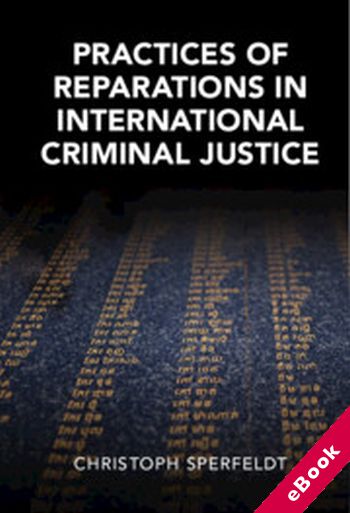
The device(s) you use to access the eBook content must be authorized with an Adobe ID before you download the product otherwise it will fail to register correctly.
For further information see https://www.wildy.com/ebook-formats
Once the order is confirmed an automated e-mail will be sent to you to allow you to download the eBook.
All eBooks are supplied firm sale and cannot be returned. If you believe there is a fault with your eBook then contact us on ebooks@wildy.com and we will help in resolving the issue. This does not affect your statutory rights.
Combining interdisciplinary techniques with original ethnographic fieldwork, Christoph Sperfeldt examines the first attempts of international criminal courts to provide reparations to victims of mass atrocities. The observations focus on two case studies: the Extraordinary Chambers in the Courts of Cambodia, where Sperfeldt spent over ten years working at and around, and the International Criminal Court's interventions in the Democratic Republic of Congo. Enriched with first-hand observations and an awareness of contextual dynamics, this book directs attention to the 'social life of reparations' that too often get lost in formal accounts of law and its institutions. Sperfeldt shows that reparations are constituted and contested through a range of practices that produce, change, and give meaning to reparations. Appreciating the nature and effects of these practices provides us with a deeper understanding of the discrepancies that exist between the reparations ideal and how it functions imperfectly in different contexts.